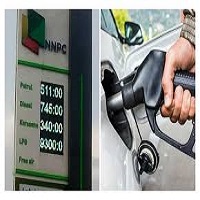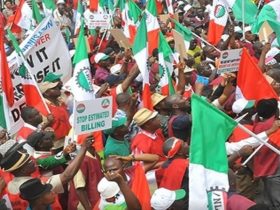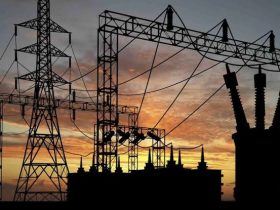The removal of the deeply entrenched Fuel Subsidy sends shockwaves that reach far beyond fuel prices, heralding a seismic shift that could reshape the very fabric of the Nigerian economy and leave an indelible mark on the lives of its people. It is a time of both anticipation and trepidation, as citizens grapple with the winds of change that now gust through the nation.
For decades, fuel subsidies have been an integral part of Nigeria’s economic landscape. Originating in the 1970s, the government began selling petrol to its citizens at prices below its actual cost, a practice largely unbeknownst to the public. The institutionalization of fuel subsidies occurred in 1977, with the implementation of the Price Control Act, which set regulated prices and made it illegal to sell certain products, including petrol, above those prices. These subsidies were introduced as a means to alleviate the impact of soaring global oil prices on the Nigerian populace, during a time of widespread inflation triggered by the energy crisis of the 1970s.
Over the years, the cost of these subsidies has skyrocketed. Between 2006 and 2018, Nigeria expended approximately 10 trillion Naira (equivalent to over $30 billion) on petroleum subsidies, with spending reaching 3 trillion Naira ($7 billion) in 2019 and 2020 alone. This substantial allocation of funds towards fuel subsidies has come at the expense of other critical sectors, as evidenced by the disproportionate amount allocated to health care compared to fuel subsidies. Compounding the issue, Nigeria’s reliance on imported refined oil, refined in Europe and then reimported, further escalates the costs absorbed by the government, leading to the need for subsidies to mitigate the burden on consumers.
Since Nigeria’s transition to civilian rule in 1979, successive administrations have made efforts to remove fuel subsidies, but these attempts have been met with resistance and policy reversals. In 1982, President Shehu Shagari’s government increased petrol prices without directly addressing subsidies, and in 1986, President Ibrahim Babangida partially removed oil subsidies as part of the Structural Adjustment Program. However, widespread protests and demonstrations led to policy reversals. President Goodluck Jonathan made notable strides in reducing fuel subsidies in 2012, but faced intense opposition and had to reduce fuel prices by 30%. President Muhammadu Buhari’s administration also initially announced the elimination of fuel subsidies last year but later reversed the decision, reverting to subsidization.
The current government’s decision to remove fuel subsidy under President Bola Ahmed Tinubu is driven by the nation’s financial constraints. The Nigerian National Petroleum Corporation NNPC revealed that it was owed 2.8 trillion naira ($6.1 billion) in outstanding subsidy payments by the government, making it financially unfeasible to continue subsidizing fuel.

Tinubu stated that there was no provision for subsidies in the budget, emphasizing the government’s inability to fund them. With the heavy debt burden inherited from previous administrations, the government recognizes the need to implement policies to alleviate the strain caused by debt and restructure the economy accordingly.
Fuel subsidies in Nigeria have long been seen as problematic, with critics labeling them as a “scam” that primarily benefits elites. During the 1970s, Nigeria experienced an era of widespread subsidies, encompassing education, healthcare, electricity, water supply, air travel, and essential commodities.
The subsidies were sustained by the oil boom the country enjoyed due to the global increase in oil prices. However, as the oil boom subsided and economic realities changed, the government has struggled to maintain fuel subsidies, leading to their removal.
Experts contend that the subsidy has imposed a significant financial burden on Nigeria’s economy. Subsidy payments have been plagued by corruption and a lack of fiscal transparency. A parliamentary inquiry in 2012 uncovered a $6 billion fraud involving officials at the state-run Nigerian National Petroleum Company NNPC
The subsidy has become fiscally irresponsible given Nigeria’s economic challenges, and its removal is seen by many as a necessary step to alleviate the strain on the nation’s finances.
One can conclude that the recent decision by President Tinubu’s government to remove fuel subsidies in Nigeria is not an isolated event but part of a historical pattern. Financial constraints, heavy debt burdens, and the need for fiscal responsibility must have driven this decision.
While fuel subsidies were once seen as a way to cushion the impact of rising global oil prices, changing economic realities and the prevalence of corruption have made them unsustainable. The removal of fuel subsidies holds both challenges and opportunities for Nigeria’s economic landscape, and it remains crucial for citizens to stay informed and engaged in the ongoing dialogue surrounding this issue.
The economic Implications of the removal of fuel subsidy in Nigeria has far-reaching implications that need to be carefully considered. One major concern is the potential inflationary impact. As subsidies are lifted, fuel prices are expected to rise, leading to increased transportation costs and affecting the prices of goods and services across various sectors. This can contribute to inflation, eroding the purchasing power of consumers. Additionally, the removal of subsidies can have significant implications for government revenue.
Subsidies have historically placed a strain on the national budget, and their elimination can free up resources that can be redirected towards critical areas such as healthcare, education, and infrastructure development. However, it is crucial to find alternative means of revenue generation to ensure fiscal sustainability in light of reduced government income from fuel subsidies.
Furthermore, the removal of subsidies can have implications for Nigeria’s foreign exchange reserves. The country heavily relies on oil exports, and any changes in global oil prices directly impact its foreign exchange earnings. By exposing the economy to the volatility of oil markets, the removal of fuel subsidies may influence Nigeria’s ability to manage its foreign exchange reserves effectively.
The discourse surrounding the removal of fuel subsidies in Nigeria involves differing viewpoints. Proponents of subsidy removal argue that it can lead to more efficient allocation of resources, reduce corruption, and stimulate private sector investment. They contend that the funds saved from subsidies can be redirected towards crucial sectors, fostering economic development and improving the living standards of Nigerians.
However, opponents of subsidy removal express concerns about its potential disproportionate impact on the poor and vulnerable segments of society. They argue that it can lead to increased poverty, inequality, and social unrest. Critics emphasize the need for comprehensive reforms within the energy sector, including addressing corruption and inefficiencies, before the removal of subsidies is implemented. The arguments put forth by experts reflect the complexity of the issue, considering both the short-term economic impacts and the necessity for long-term structural reforms.
Government’s unwavering commitment to the removal of fuel subsidy signals a determination to address the deep-rooted challenges and corruption associated with it. Despite the expected fierce opposition from the people, the vice president’s resolute statement affirms the strong will and conviction of President Tinubu.
“And we know the consequences of unveiling a masquerade. We will get fierce opposition from those benefitting from the oil subsidy scam. But where there is a will, there is a way. Be rest assured that our president is a man of strong will and conviction. Vice President Kashim Shettima stated. Recall on May 31st the meeting between the organised labour and the federal government on the removal of subsidy on fuel ended in a stalemate as no agreement was reached and Nigerians are eagerly observing, patiently awaiting the government’s mitigation strategies to alleviate the adverse effects of this decision.
Meanwhile, recent development indicates that the President has directed the implementation of palliatives to mitigate the impact of subsidy removal on the masses.
The Group Chief Executive Officer of Nigerian National Petroleum Company Limited (NNPC), Mr. Mele Kyari, confirmed this while addressing a press conference in Abuja”I am aware that Mr. President has directed some engagement and the provision of palliatives, and I am confident that this will be implemented.” Mr. Kyari stated.
The removal of fuel subsidy in Nigeria has sparked diverse reactions, reflecting the complex and far-reaching impact of this decision. While it aims to address economic inefficiencies and redirect resources, concerns have been raised about inflation, government revenue, and the welfare of vulnerable groups. The long-term implications remain uncertain, but it is clear that this issue demands continued engagement and dialogue.











Leave a Reply